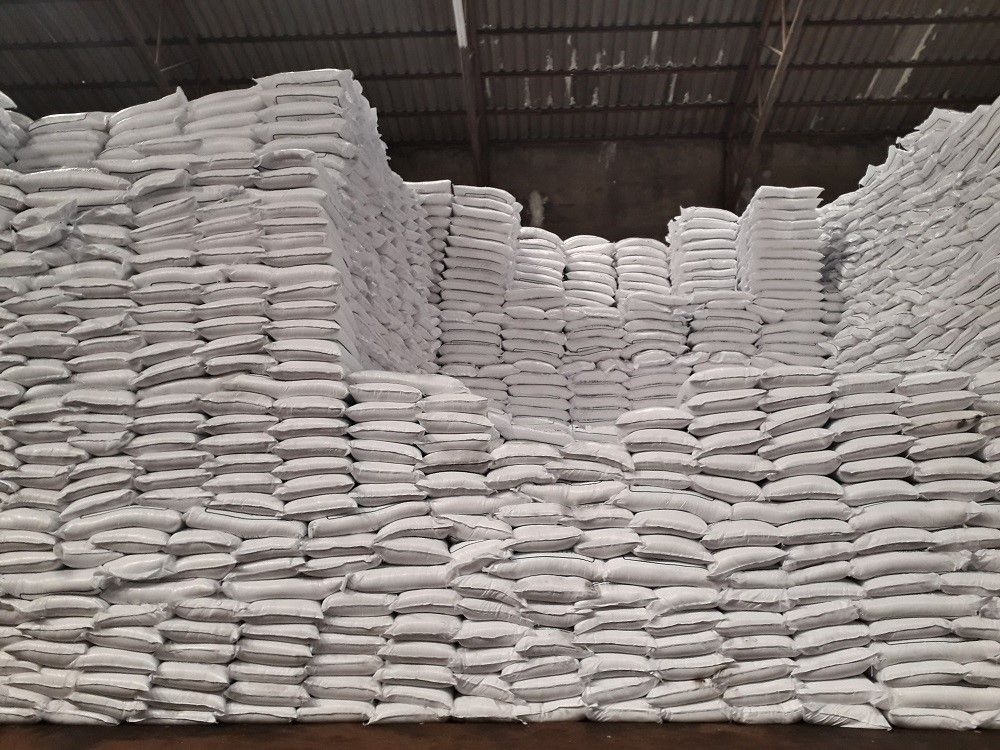Fertilizer Stock is Secured, National Food Security is Maintained

PT. Pupuk Indonesia, the parent company of five fertilizer manufacturers in Indonesia, is reassuring farmers that the fertilizer stock is secured. As of April 2022, PT Pupuk Indonesia has realized the production of 3.92 million tons of fertilizers and continues to maintain the production to meet the national subsidized fertilizer allocation.
As reported by AntaraNews, Pupuk Indonesia Director of Production, Bob Indiarto, stated that the detail of 3.92 million tons consists of 2,485,566 tons of Urea, 93,650 tons of SP-36, 246,675 tons of ZA, 1,089,254 tons of NPK, and 3,771 tons of ZK fertilizer. These number has met the national subsidized fertilizer allocation that is determined by the government. Bob Indiarto also assures that the current production of fertilizer for the next period is also secured.
“The five fertilizer producers who are members of the Pupuk Indonesia holding are currently operating well, smoothly, and optimally,” he said.
Fertilizer’s role in maintaining food security
Securing fertilizer availability for farmers becomes crucial as it would affect national food security. It is due to the fact that without the addition of fertilizers, there would be a significant reduction in crop yield and agricultural productivity. The fertilizers contain minerals that are used to supplement the soil’s nutrient stocks that can be quickly absorbed and used by crops. Without the addition of fertilizers, nature struggles to replenish the nutrients on time with the plants’ needs.
Currently, the government is subsidizing around seven types of fertilizers that are Urea, Sp-36, ZA, NPK regular and special blend, Organic Granules, and Liquid Granules fertilizers. Each supplies the plant with different minerals and different concentrates. For example, the NPK fertilizers supply the plants with two or more minerals in suitable portions to help fulfill the nutrient deficiency in a more balanced manner. Nitrogen supplied by the NPK fertilizer is the main component of chlorophyll, which maintains balance during photosynthesis. Lack of nitrogen can then lead to the disruption of the photosynthesis process and the health of the plant, ending in a depleting crop yield.
Therefore a disruption in the fertilizing production can very much affect the national food security. With the disruption of the global supply chain due to the conflict in Russia, the Ministry of Agriculture along with Indonesia’s state-owned fertilizer producers is working together to ensure fertilizer production security.
“This support for the stability of Indonesia’s fertilizer supply will have a good impact on the national food security program,” said Minister of Agriculture, Syahrul Yasin Limpo as reported by CNN Indonesia.
Efforts made by the fertilizer industry in securing fertilizer stock
The growing concern of fertilizer shortage comes from the growing conflict between Russia and Ukraine that affected the supply of raw materials to make fertilizers. Previously, Russia was one of the major suppliers of fertilizer raw materials that are mainly Phosphate (DAP and Rock Phosphate) and Potassium (KCl), which the country is currently declaring a moratorium on exports. Making the fertilizers producers in Indonesia have to find new sources for the raw materials.
“We need to secure the stock because Phosphate and Potassium are raw materials from mining products that are not available and cannot be produced domestically,” explained Bob Indiarto.
Efforts in securing the raw materials come from a collaboration between PT Pupuk Indonesia and a Jordanian company, Jordan Phosphate Mines Co. Plc (JPMC). The collaboration is contained in a memorandum of understanding signed by the President Director of Pupuk Indonesia, Bakir Pasaman, and the Chairman of JPMC, Mohammad Thneibat, on May 31, 2022, during the International Fertilization Association (IFA) Annual Conference in Vienna, Austria. With the collaboration between the two companies signed and witnessed by the Minister of Agriculture, Syahrul Yasin Limpo, and the General Director of Agricultural Infrastructure of the Ministry of Agriculture, Ali Jamil, PT Pupuk Indonesia has stabilized the supply of Phosphate or fertilizer raw material for Indonesia.
The cooperation in stabilizing fertilizer supply for Indonesia between PT Pupuk Indonesia and JPMC will also encourage opportunities and collaboration in three strategic areas.
First, a short-term program to ensure the supply of Phosphate from JPMC to PT Pupuk Indonesia to stabilize fertilizer supply and strengthen national food security. Second, the medium-term program encourages JPMC to prepare an agreed price scheme to maintain the continuous supply of fertilizer raw materials for Pupuk Indonesia. And lastly, the third is a long-term program to establish even greater cooperation, namely the joint venture of the fertilizer industry in Indonesia.
PT Pupuk Indonesia has also ensured additional supplies from sources from other countries, such as Canada and Middle Eastern countries. Making the supply of raw materials for NPK fertilizer is within safe limits for smooth production until the end of the year. (Demfarm/Safaanah)
